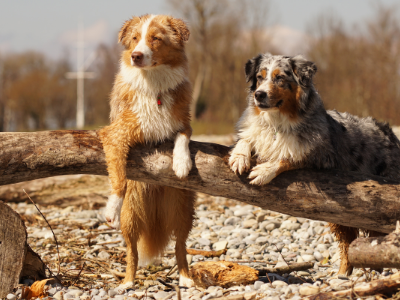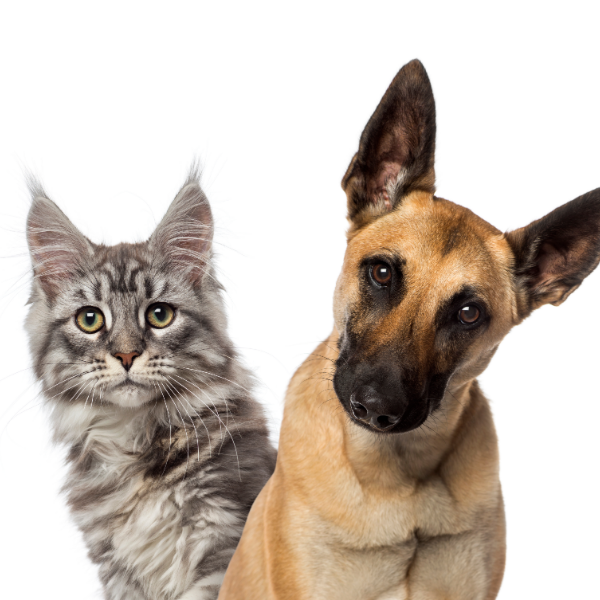Signs and Symptoms
Depending on the severity of the pancreatic flare-up, signs and symptoms may vary. Symptoms can include little or no appetite, pain in the abdominal region and/or back, diarrhea, vomiting, dehydration, lethargy, hypothermia, and irregular heartbeat. It can be life-threatening so it’s important to consult your vet as early as possible. Oftentimes, a pancreatic flare-up can occur after a pet consumes something he shouldn’t have (garbage) or after a fatty meal like bacon fat. It can also occur following a traumatic injury such as a car accident or after starting new drug therapy. It can also become a recurring or chronic issue for which a long-term treatment plan should be made. In chronic cases, it should be noted that the animal is in a weakened state that he may have trouble fully recovering from. He needs help beyond the basics to regain his health and so that symptoms do not keep returning. Diet and supportive food supplements are of utter importance in these cases.
Improper Diet and Pancreatitis
If a dog or cat is being fed a processed food source such as dry or canned foods, the diet is devoid of live enzymes. When pancreatic enzymes are the only source of live enzymes the body has access to during digestion, the pancreas sometimes can’t keep up. Even if your pet is seemingly fine most of the time on a dry food diet, the pancreas is being overtaxed by this massive demand for enzymes to break down food. Over time, the body can begin to compensate in a number of ways. Animals are, in a sense, running out of steam in the enzyme department. This can occur at any stage in life depending on the animal. Live enzymes only occur in living, raw foods. Many animals that have digestive concerns do well when they are switched onto a healthy and balanced raw food diet. Many have better success being put onto supportive digestive enzymes before the switch. You may even wish to cook the raw foods first (except for bones) and then slowly transition to raw. Long-term digestive enzyme support may be needed for animals that have been compromised for a long time. This will help the body and cells to fully repair themselves. Remember that Not All Raw Diets Are Created Equally and some are too high in saturated fats, made from low-quality, fatty cuts of meat. This can cause pancreatitis flare-ups.
Treatments
Conventional treatments are broad since each case is different depending on the severity and the cause. Therapies could include IV fluids, drug therapy, and a prescription diet. A holistic vet may also use acupuncture, herbs, homeopathy, or other complementary medicines. A low-fat diet is often essential for these animals. There are prescription veterinary diets that can be fed but, in my experience, I find fresh food diets to have a more healing and long-lasting effect. This is doubly true for chronic cases. Unfortunately, prescription veterinary diets are still devoid of live enzymes and are often made with low-quality ingredients including meat by-products and chemical additives. They are usually low in fat (an important factor) but do not offer any way for the body to repair itself and avoid future flare-ups. This needs to be done with high-quality proteins, naturally occurring vitamins, minerals, antioxidants, phytonutrients, and ENZYMES.
Healthy Foods and Supplements for Pancreatic Health
-A Raw Diet
Animals suffering from pancreatic issues are usually enzyme deficient. Pets that do not receive live foods on a regular basis cannot keep up with their enzyme requirements and some run a deficit which can cause disease and inflammation of the pancreas. Because the pancreas is also part of the endocrine system, it affects metabolic functions such as blood sugar regulation, nervous system function, and blood flow. Some pets are born with a deficiency at birth which makes it even harder, if not impossible, for them to recover without the aid of real food. By feeding as many living raw foods as possible, you will help your pet to find his equilibrium again. Be strict with treats too and don’t allow others to feed your pet without asking. Treats should be natural, low fat, and easily digestible.
-Low-Fat Proteins
The pancreas is the body’s main source of the enzyme lipase. This enzyme is responsible for digesting fats. Animals with pancreatitis need a low-fat diet because fat is hard for them to digest fat and this can cause flare-ups. Stick to lean proteins such as extra lean beef, buffalo, elk, rabbit, and kangaroo, and steer clear of the fattier proteins like duck, pheasant, camel, and lamb. Balancing the fats is also important. These pets may not be able to tolerate too much in the way of omega fatty acids. There are concentrated pharmaceutical-grade omega oils on the market today that offer the anti-inflammatory benefits of omega 3’s without having to feed a large portion. A low-fat diet is crucial for pets with pancreatitis!
-Antioxidants
Antioxidants. As many and as often as possible. By adding antioxidants, you can help your pet to decrease inflammation within the tissues of the body. Animals dealing with inflammatory diseases usually need more antioxidants than healthy animals. Offer as many green leafy veggies and super green foods as possible such as spirulina, chlorella, and moringa leaf. Berries of all types offer a great source too.
-Pumpkin
Pumpkin is good to have on hand and to feed daily during flare-ups. It naturally helps to bind loose stools and is soothing to the digestive system. Canned pumpkin with no spices or pulped raw pumpkin is best.
-Digestive Enzymes
Digestive enzymes are a must for all pets dealing with pancreatic disease. If they are to have a proper chance of recovery, this is a must. This takes the pressure off of the pancreas to produce all of the enzymes needed for digestion. A high-quality canine or feline-specific enzyme powder is best and, the more variety, the better. Ask us for our recommendations.
-Glandular Supplementation
Glandulars have shown to be clinically effective in cases of glandular disease such as pancreatitis. Glandular supplements usually contain desiccated animal glands that are specific to the organ in need of support. These are usually available through veterinarians only so ask your vet if glandular might be a good option for your pet.
-Individual Diet Planning
Cases of pancreatitis vary greatly so it’s best to have a professional help you to ensure you are taking all the appropriate steps and using the most appropriate foods for the individual animal. Other vitamins, minerals, or supplementation may be useful depending on the case. Ask your holistic vet or a pet nutritionist for assistance.



